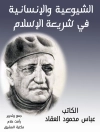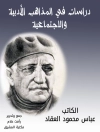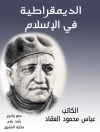This volume celebrates the depth and breadth of Jewish philosopher Moses Maimonides’ (1138–1204) achievements. The essays gathered here explore the rich diversity of a heritage that extends over eight hundred years, beginning with Maimonides’ historical context; ranging through his distinct contributions to philosophy, theology, medicine, and Jewish law; to the impact his ideas have had on later generations. His humane perspective and commitment to intellectual rigor are reflected in the wide range of his works and his active role as a spiritual guide and intellectual leader. Maimonides’ intellectual openness makes his work an enduring model of creative synthesis and critical appropriation, as well as a continuing source of intellectual stimulation not only for the many specialist scholars who scrutinize his texts but also for a wide and lively audience of nonspecialists.
Table of Content
Acknowledgments
Introduction
List of Abbreviations
1. Maimonides as Biblical Exegete
Arthur Hyman
2. Philosophical Themes in Maimonides’ Sefer Ahavah
Menachem Kellner
3. Maimonides on Joy
Moshe Sokol
4. Maimonides’ Psychology
Alfred L. Ivry
5. Bahya and Maimonides on the Worth of Medicine
Lenn E. Goodman
6. The Ambiguity of the Imagination and the Ambivalence of Language in Maimonides and Spinoza
Idit Dobbs-Weinstein
7. The Philosophical Mysticism of Maimonides and Maimon
Gideon Freudenthal
8. Persecution and the Art of Representation: Schocken’s Maimonides Anthologies of the 1930s
Martina Urban
9. Maimonides in the Crucible of Zionism: Reflections on Yeshayahu Leibowitz’s Negative Theology
Paul Mendes-Flohr
10. Can We Be Maimonideans Today?
David Novak
Bibliography
List of Contributors
Index
About the author
Idit Dobbs-Weinstein is Associate Professor of Philosophy at Vanderbilt University and the author of
Maimonides and St. Thomas on the Limits of Reason, also published by SUNY Press.
Lenn E. Goodman is Professor of Philosophy and Andrew W. Mellon Professor in the Humanities at Vanderbilt University. He is the author or editor of many books, including
Aristotle’s Politics Today (coedited with Robert B. Talisse);
Jewish Themes in Spinoza’s Philosophy (coedited with Heidi M. Ravven); and
Neoplatonism and Jewish Thought, all published by SUNY Press.
James Allen Grady is a Ph D candidate in Philosophy and Graduate Fellow at the Center for the Study of Religion and Culture at Vanderbilt University.












